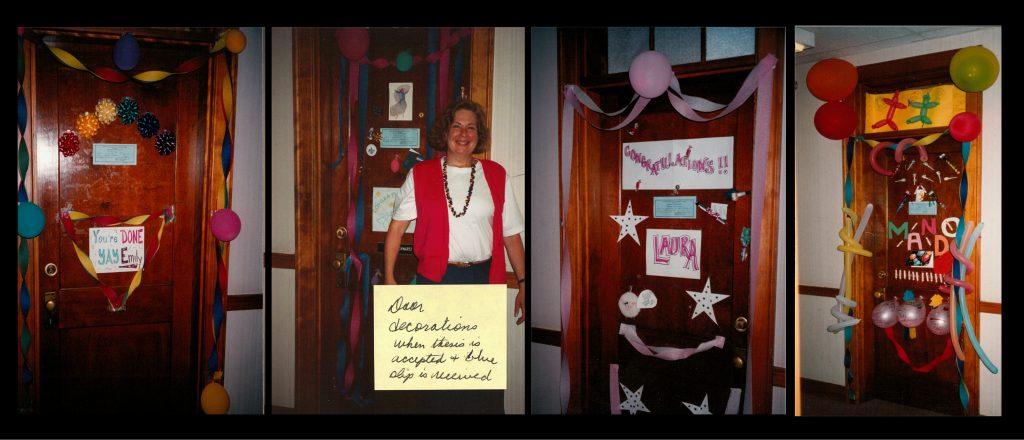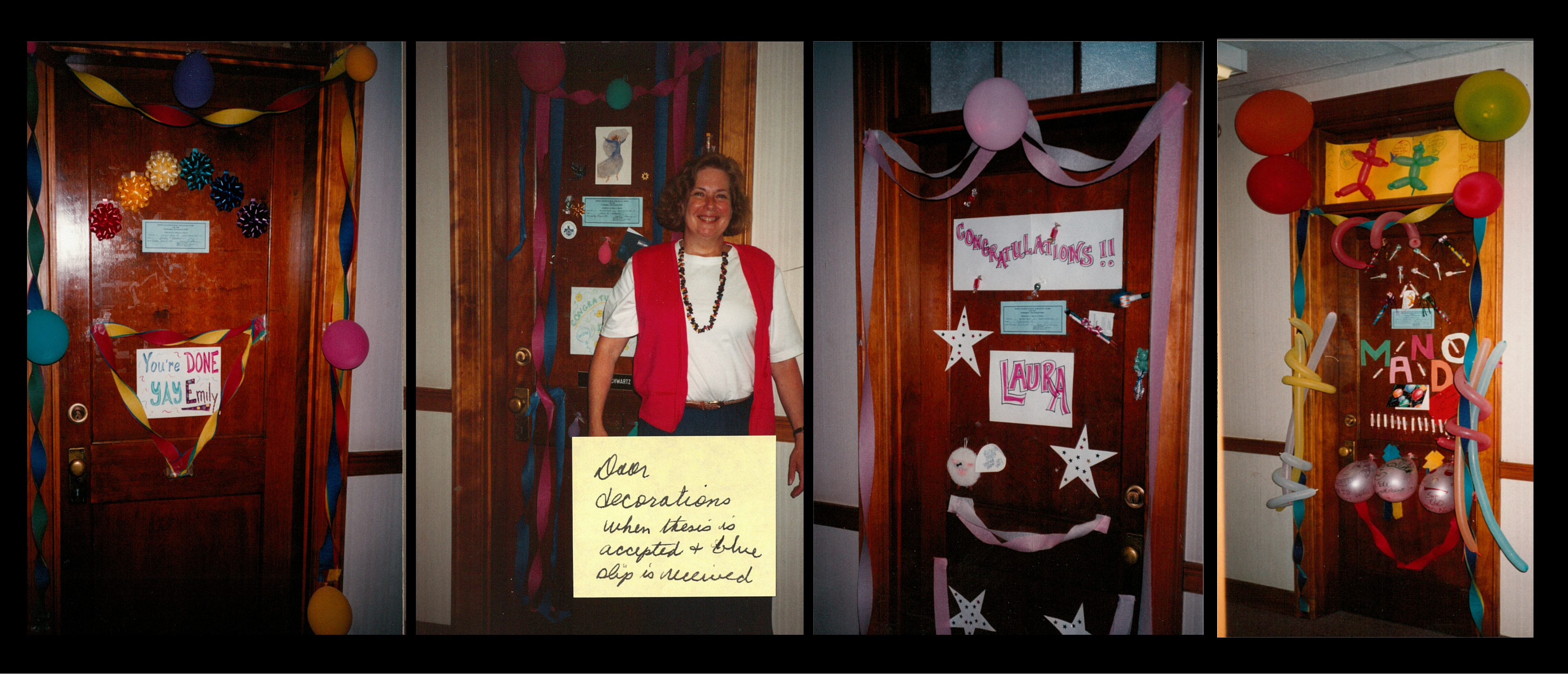[et_pb_section bb_built=”1″ admin_label=”section” background_color=”rgba(0,62,81,0.55)” parallax_method=”off” next_background_color=”#ffffff” custom_padding_tablet=”50px|0|50px|0″ custom_padding_last_edited=”on|desktop” _builder_version=”3.2.2″ background_image=”https://sites.smith.edu/ssw100-history/wp-content/uploads/sites/256/2018/07/Thesis-door-decorations-when-submitted-unknown-photographer.jpg” background_blend=”overlay” module_class=”blue”][et_pb_row admin_label=”row” background_position=”top_left” background_repeat=”repeat” background_size=”initial”][et_pb_column type=”1_3″][/et_pb_column][et_pb_column type=”2_3″][et_pb_divider color=”#ffffff” show_divider=”off” height=”200″ divider_style=”solid” divider_position=”top” hide_on_mobile=”on” disabled_on=”on|on|off” _builder_version=”3.2.2″ /][et_pb_post_title _builder_version=”3.2.2″ meta=”off” featured_image=”off” text_color=”light” title_font_size=”50px” title_line_height=”1.2em” /][/et_pb_column][/et_pb_row][/et_pb_section][et_pb_section bb_built=”1″ specialty=”off” parallax_method=”off” prev_background_color=”rgba(0,62,81,0.55)” custom_padding_tablet=”50px|0|50px|0″ custom_padding_last_edited=”on|desktop” _builder_version=”3.2.2″][et_pb_row admin_label=”row” make_fullwidth=”off” use_custom_width=”off” width_unit=”on” use_custom_gutter=”off” custom_padding=”0px|||” padding_mobile=”on” allow_player_pause=”off” parallax=”off” parallax_method=”off” make_equal=”off” parallax_1=”off” parallax_method_1=”off” parallax_2=”off” parallax_method_2=”off” column_padding_mobile=”on” background_position=”top_left” background_repeat=”repeat” background_size=”initial”][et_pb_column type=”1_3″][et_pb_post_title admin_label=”Categories” _builder_version=”3.2.2″ title=”off” author=”off” date=”off” comments=”off” featured_image=”off” meta_text_color=”#6fbee5″ /][et_pb_code admin_label=”Tags” _builder_version=”3.2.2″][tags][/et_pb_code][/et_pb_column][et_pb_column type=”2_3″][et_pb_text max_width=”620px” text_font_size=”20″ text_text_color=”#363636″ use_border_color=”off” custom_margin=”10px||0px|” text_line_height=”1.4em” text_font_size_last_edited=”on|desktop” background_position=”top_left” background_repeat=”repeat” background_size=”initial” _builder_version=”3.2.2″]
In 2017, the Smith College Studies in Social Work Journal published a wide array of articles analyzing and reflecting upon one hundred years of thesis writing at SSW. This collection was prompted in part by the decision to discontinue the thesis requirement as the school began its next century. Below you will find titles, abstracts, and links to the full articles from this special edition (volume 87, issue 4).
[/et_pb_text][/et_pb_column][/et_pb_row][et_pb_row][et_pb_column type=”1_4″][/et_pb_column][et_pb_column type=”3_4″][et_pb_text admin_label=”editorial” _builder_version=”3.2.2″]
[/et_pb_text][et_pb_text admin_label=”Articles heading” _builder_version=”3.2.2″]
Articles
[/et_pb_text][et_pb_text admin_label=”Jean LaTerz” _builder_version=”3.2.2″]
The MSW Thesis: A Rich and Scholarly Tradition at Smith College School for Social Work
[/et_pb_text][et_pb_text admin_label=”James W. Drisko” _builder_version=”3.2.2″]
[/et_pb_text][et_pb_text admin_label=”Debra Hull” _builder_version=”3.2.2″]
Research Methods: Serving the Thesis Legacy through a Social Justice Commitment
Debra Hull, PhD
This reflection celebrates the ways in which the research methods courses (as they have historically served as the gateway to the thesis) have supported the justice ethic, including the antiracism commitment, within the Smith College School for Social Work. Discussion of the theoretical underpinnings of justice as a core value in social work education traces the evolution of distributive justice, relational justice, and strengths-based justice. Specific examples of how the research methods sequence has applied justice-based education within the curriculum are detailed, along with a presentation of qualitative and quantitative data supporting these efforts.
[/et_pb_text][et_pb_text admin_label=”Reflections heading” _builder_version=”3.2.2″]
Reflection Papers
[/et_pb_text][et_pb_text admin_label=”Debra Carney” _builder_version=”3.2.2″]
[/et_pb_text][et_pb_text admin_label=”Sika Berger, Pamela Skinner, & Mary Lou Bouley” _builder_version=”3.2.2″]
[/et_pb_text][et_pb_text admin_label=”Pearl Soloff” _builder_version=”3.2.2″]
[/et_pb_text][et_pb_text admin_label=”Joan Lesser” _builder_version=”3.2.2″]
Intersubjectivity in Thesis Advising
[/et_pb_text][et_pb_text admin_label=”Sophie Marzin” _builder_version=”3.2.2″]
The Legacy of the Thesis Project and Research Advising: A Different Kind of Relationship
[/et_pb_text][et_pb_text admin_label=”Byers” _builder_version=”3.2.2″]
Learning Together: A Dialogue on Collaborative MSW Thesis Advising
[/et_pb_text][et_pb_text admin_label=”Wendy B. Rosen, PhD” _builder_version=”3.2.2″]
The Master’s Thesis as Creative Enterprise
[/et_pb_text][et_pb_text admin_label=”Anderson Beckmann Al Wazni” _builder_version=”3.2.2″]
Research and Writing Is Social Justice Activism
[/et_pb_text][et_pb_text admin_label=”Rebecca Stahl” _builder_version=”3.2.2″]
Clinical Practice versus Social Justice Activism: Resolving Conflict through Research
[/et_pb_text][et_pb_text admin_label=”Casey Loughran” _builder_version=”3.2.2″]
Transformative Holding: A Reflection on the Legacy of the Smith School for Social Work Thesis
Casey Loughran MSW, LICSW
The Smith College School for Social Work thesis offers the student the opportunity to be nurtured into a competent clinician within the holding environment of the advisor–advisee relationship. My master’s thesis focused on caregiver response to infant sleep-related crying. This reflection describes the progression in my thesis process from focusing on how letting an infant “cry it out” neglects the infant’s psychological development to a more nuanced understanding of the caregiver’s subjectivity as central in the infant’s development of regulatory functions. My shift in understanding of the self and self-other relating was only possible through the deeply personal experience of being held within the advisor–advisee relationship. The containing function in this relationship parallels the way in which a “good enough” caregiver nurtures an infant. I conclude with a clinical vignette that exemplifies the expression of my internal transformation.
[/et_pb_text][et_pb_text admin_label=”Monica McGoldrick” _builder_version=”3.2.2″]
Reflections on My 1969 Smith College School for Social Work Thesis: Children’s Use of Humor in Psychotherapy
Monica McGoldrick MSW, PhD
I had wanted to do my thesis on family’s use of humor in therapy. My first lesson was that that was too complicated a project—a lesson in practicality, which influenced my entire future career. My thesis also gave me the chance to focus on children’s resourcefulness and resilience, rather than just on their problems and psychopathology. After graduation, my advisor proposed that I publish my thesis. Her generosity in mentoring me toward publication was an extraordinary boon. I had no idea how to go about submitting something for publication, and she guided me through the process, giving me confidence to proceed professionally. I believe practitioners need to be encouraged, as I was, to push their ideas and insights into expanding theory and practice for the benefit of our communities for the future. We have a great need to push the boundaries of support, change, healing, and transformation.
[/et_pb_text][et_pb_text admin_label=”Maia Nikitovich” _builder_version=”3.2.2″]
Epitaph for a Thesis: Bridging the Gap between Grief and Growth
Maia Nikitovich LMSW
This narrative and descriptive essay traces the legacy and impact that the Smith College School for Social Work thesis had on me as an individual and social worker. It explains the personal experiences I was facing immediately before beginning the thesis, which was the sudden death of my father, and the journey of self-discovery and healing that took place as I was writing it. The essay ends with a reflection on the importance of research and the value I found in the thesis process within my personal and my professional life.
[/et_pb_text][et_pb_text admin_label=”Zpora R. Perry” _builder_version=”3.2.2″]
The Me-this, Redeemed: A Reflection on My Thesis Project and How It Helped Me Heal
Zpora R. Perry LICSW
This is an essay reflecting on the importance of the author’s thesis in her healing process from cancer. It explores the process from deciding to do a project so closely linked to the author’s life (colloquially called a me-this) to the impact of the research, interviews, and findings. The author explores themes of mindfulness and presence as well as the power of cocreated relationships in this setting and therapeutic ones.
[/et_pb_text][et_pb_text admin_label=”Cole Douglas Hooley, LCSW” _builder_version=”3.2.2″]
A Familiar Friend: The Impacts of the Master’s Thesis Over Four Formative Career Phases
Cole Douglas Hooley, LCSW
Over the course of my career, I have experienced the thesis in different ways. This reflection paper will relay my encounters with what I am calling “thesis-objects” (to borrow a concept from object relations). I encountered the thesis-objects at different phases of my professional development: when I was a student, a supervisor for Smith MSW students, a PhD applicant, and chair of the Alumni Thesis Award Committee. My relationship with each thesis-object has refined me and granted me new perspective and personal growth. When I was a student, the thesis was a coach helping me develop tools to answer important questions. When I was a supervisor, the thesis was a bridge-builder, strengthening my relationships with supervisees. Then, when I was a PhD applicant, the thesis was a door-opener, providing me means to access PhD opportunities. Now that I am a chair, the thesis is a teacher opening my eyes to new intellectual terrain and pressing social problems.
[/et_pb_text][/et_pb_column][/et_pb_row][et_pb_row][et_pb_column type=”4_4″][et_pb_text _builder_version=”3.2.2″]

[/et_pb_text][/et_pb_column][/et_pb_row][/et_pb_section]
